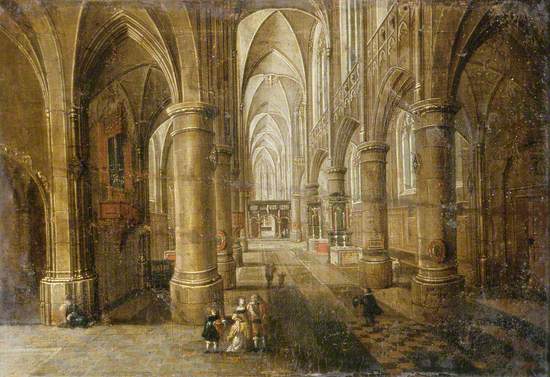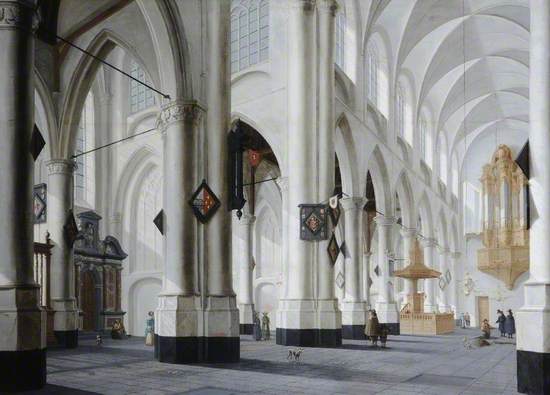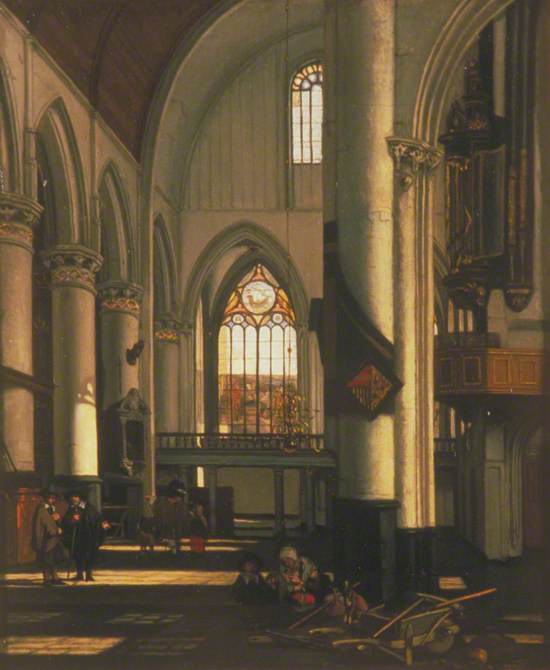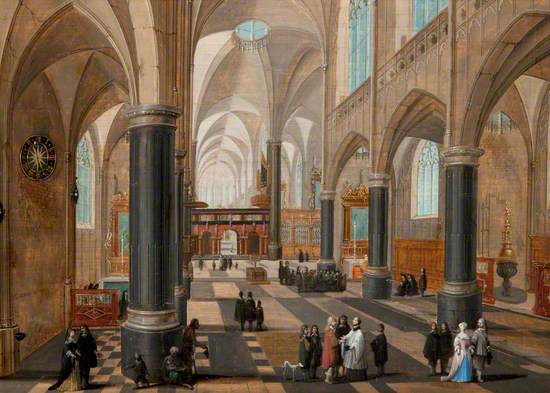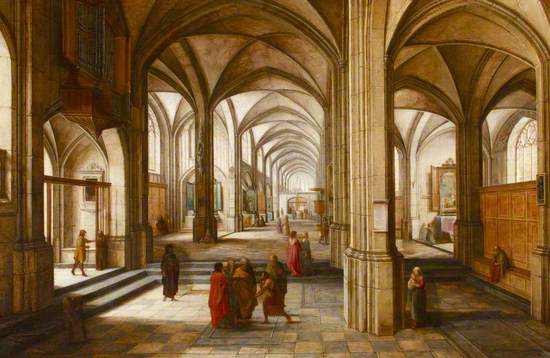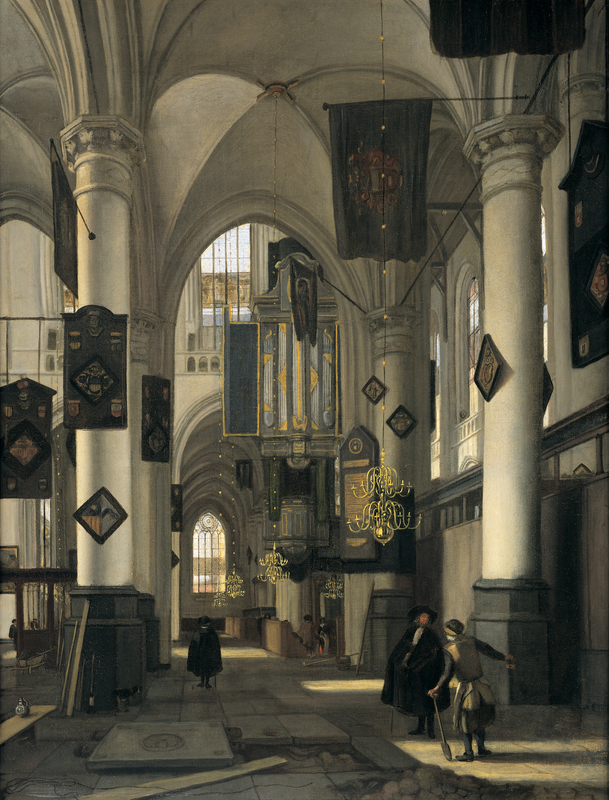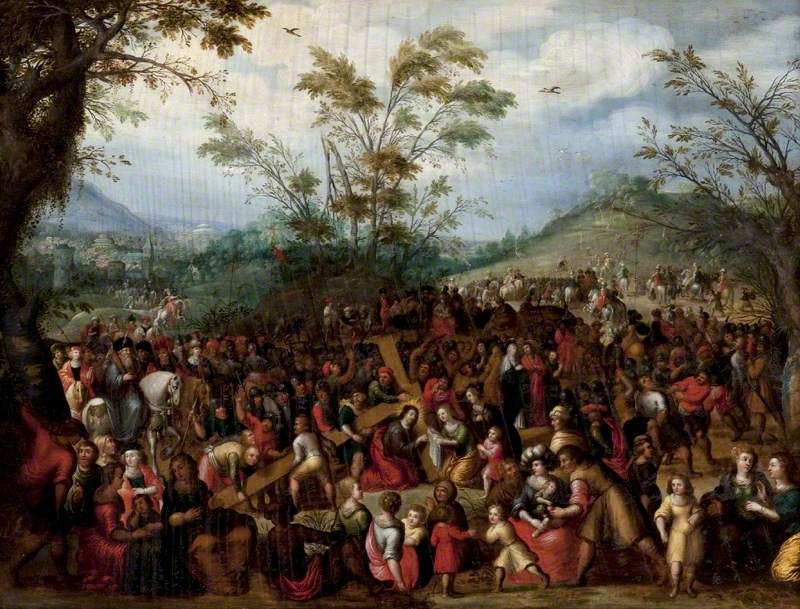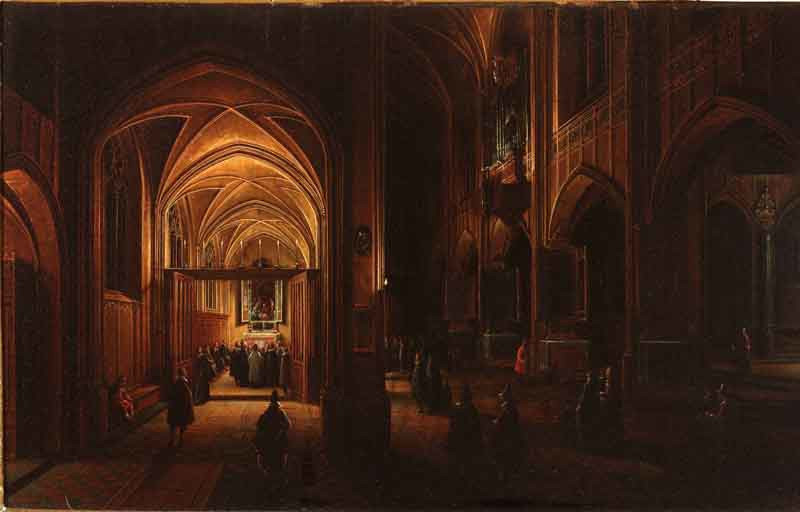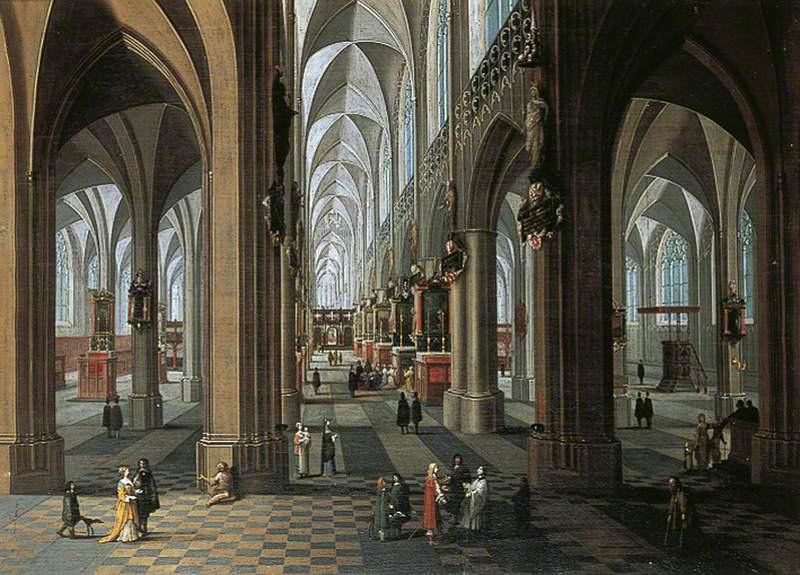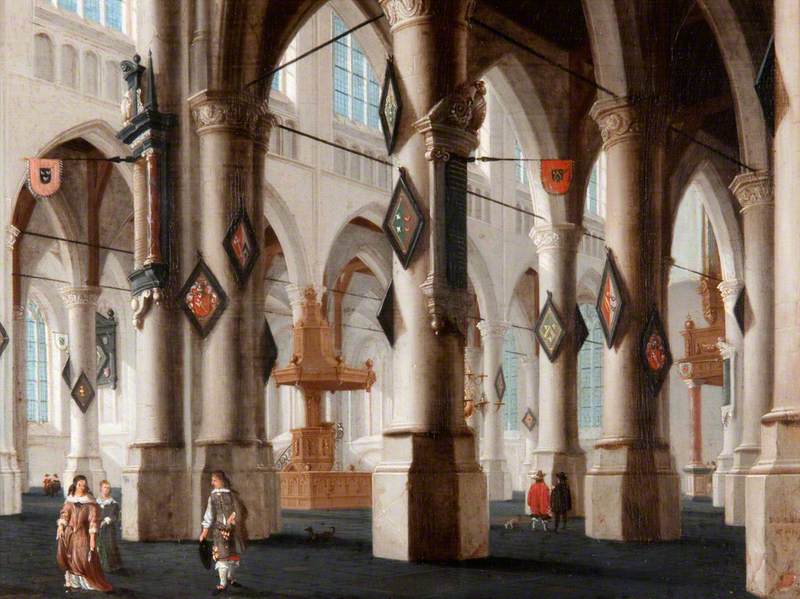On your travels on Art UK you may come across these curiously quiet, softly rendered church interior scenes – I certainly did, and found myself wondering, “What’s with them all being ‘imagined’?”
It turns out, the painters were often either interested in architecture or were practising architects themselves. These paintings are full of space and perspective: cavernous cathedrals being the ultimate playground for a student wanting to flex those particular muscles.
Frans Francken II (1581–1642) and Peeter Neeffs the younger (1620–1675)
Oil on canvas
H 37.8 x W 54.5 cm
Brighton & Hove Museums
While often based on real buildings, elements have been pilfered, erased, and moved around at the painter’s whim. They can be seen as studies or try-outs, much like an architect’s use of 3D rendering software today – or that massive cathedral-esque mansion you always end up building on The Sims.
Daniel de Blieck (c.1610–1673)
Oil on panel
H 86.5 x W 121.2 cm
Ferens Art Gallery
What is interesting, and perhaps not obvious at first, is that these works are typically Post-Reformation. Rich frescoes and ornament would have been very recently whitewashed. Architecture painters of the time would have been keen to record this seismic change in human perception of these spaces, and the proliferation of these types of scenes demonstrates a revelling in the newfound sobriety of Protestantism.
Emanuel de Witte (c.1615–1617–1692)
Oil on canvas
H 38 x W 31 cm
City of London Corporation
Not everyone’s imaginary interiors followed the rules. No no, in the case of Pieter Neeffs the younger, his church scenes are subtly re-Catholicised, with scenes of Mass, communion, and wandering priests filling his spaces, religious paintings and sculpture visible in the fringes.
Peeter Neeffs the younger (1620–1675) (attributed to)
Oil on panel
H 39 x W 52 cm
Glasgow Life Museums
From young bucks showing off their space-bending skills, to a form of gentle protest (or fully fledged counter-Reformation propaganda, depending on how you look at it) these quiet paintings have got a lot to say.
Hendrick van Steenwijck the younger (c.1580–1649)
Oil on panel
H 76 x W 116 cm
National Trust, Petworth House
